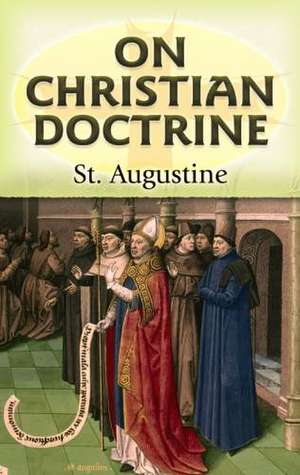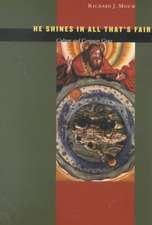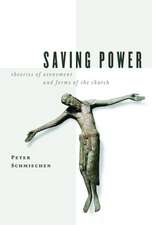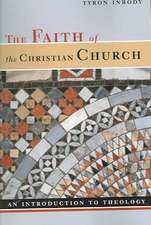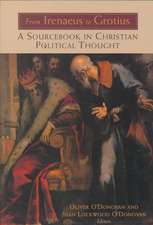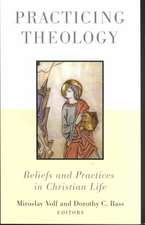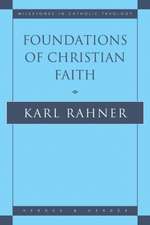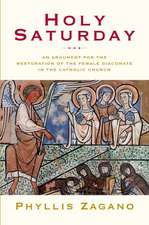On Christian Doctrine: 99 Designs from a Competition
Autor Edmund O. P. Augustine Traducere de J. F. Shawen Limba Engleză Paperback – 31 dec 2008
The first of "On Christian Doctrine"'s four parts begins with an overview of the subjects treated in holy scripture. Subsequent parts discuss signs and their recognition, the distinctions between literal and figurative expressions, and the scriptures' stylistic combination of eloquence and wisdom. Above all, Augustine's text concerns itself with the ways in which individuals can live in harmony with Jesus' teachings. Christians and non-Christians alike value this work for its role in historical theology, its influence on the development of Biblical interpretation, and its insights into the mind of a great Christian philosopher and ecclesiastic.
Preț: 51.54 lei
Nou
Puncte Express: 77
Preț estimativ în valută:
9.86€ • 10.32$ • 8.21£
9.86€ • 10.32$ • 8.21£
Carte disponibilă
Livrare economică 11-25 martie
Preluare comenzi: 021 569.72.76
Specificații
ISBN-13: 9780486469188
ISBN-10: 0486469182
Pagini: 192
Dimensiuni: 135 x 211 x 13 mm
Greutate: 0.2 kg
Ediția:Dover.
Editura: Dover Publications
ISBN-10: 0486469182
Pagini: 192
Dimensiuni: 135 x 211 x 13 mm
Greutate: 0.2 kg
Ediția:Dover.
Editura: Dover Publications
Cuprins
Preface, showing the utility of the treatise on Christian doctrine
Book I. Containing a general view of the subjects treated in Holy Scripture
Book II. Having completed his exposition of things, the author now proceeds to discuss the subject of signs.
Book III. The author, having discussed in the preceding book the method of dealing with unknown signs, goes on in this third book to treat of ambiguous signs.
Book IV. Passing to the second part of his work, that which treats of expression, the author premises that it is no part of his intention to write a treatise on the laws of rhetoric.
Notă biografică
St. Augustine is among the most important theologians in Christendom. His concept of the church as a spiritual world, distinct from the material world, exercised a profound influence on medieval philosophy, and his Confessions are among the world's most widely read autobiographies.
